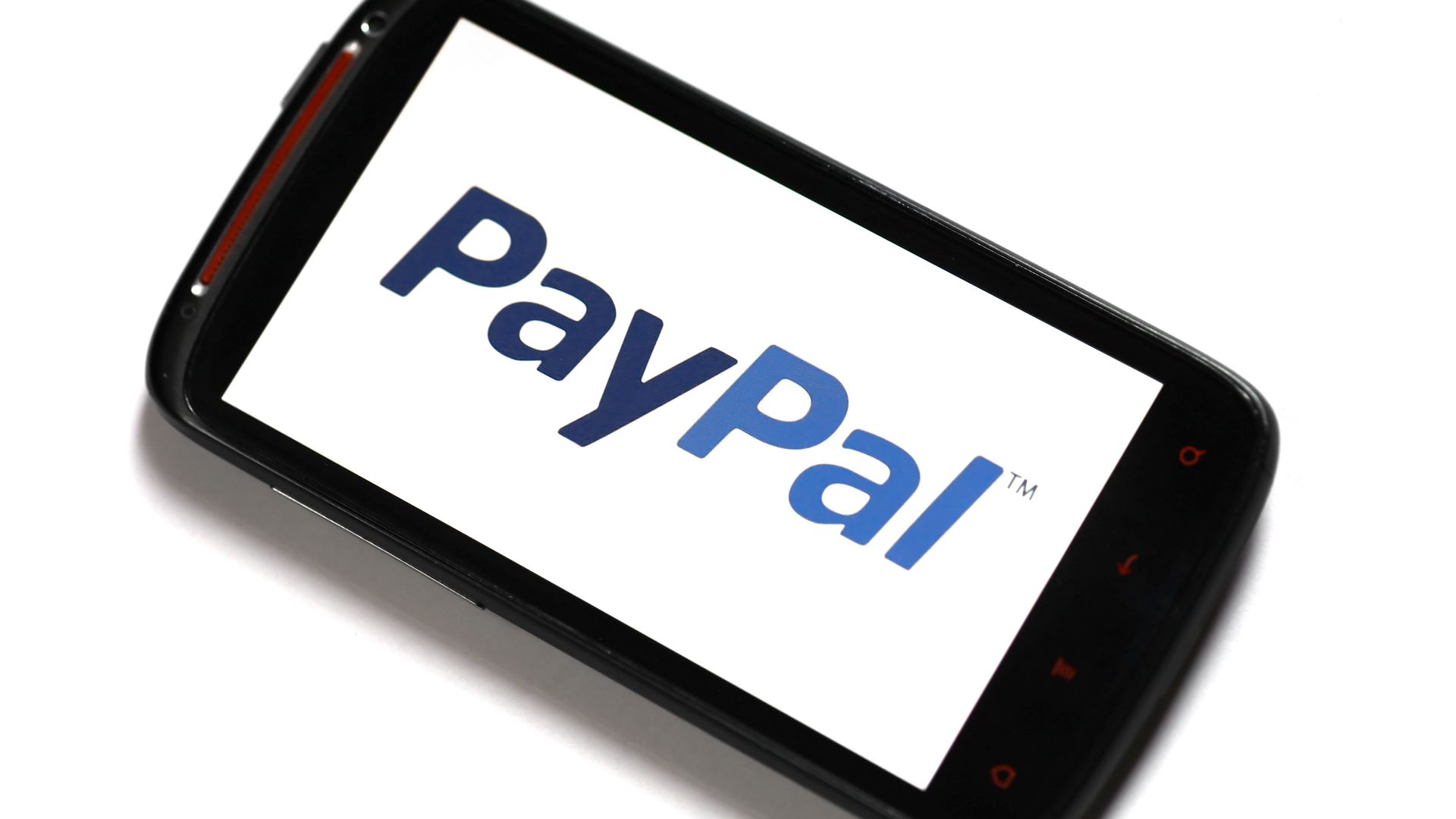

Finance
What If Insurance Pays More Than Repairs?
Published: November 21, 2023
Discover what happens when insurance pays more for repairs than expected. Explore how this affects your finances and learn how to navigate the situation effectively.
(Many of the links in this article redirect to a specific reviewed product. Your purchase of these products through affiliate links helps to generate commission for LiveWell, at no extra cost. Learn more)
Table of Contents
Introduction
Insurance plays a crucial role in safeguarding our financial well-being by providing coverage for unexpected events and expenses. Whether it’s insuring our homes, automobiles, or health, insurance policies offer a sense of security and peace of mind. In the event of an accident or loss, insurance companies typically reimburse policyholders for the cost of repairs or replacements.
However, have you ever wondered what happens if your insurance pays more than the actual cost of repairs? While it may seem like a fortunate turn of events, there are implications to consider. In this article, we will explore the scenario in which insurance pays more than the necessary amount for repairs and delve into the potential consequences, benefits, ethical considerations, and potential solutions.
Understanding the nuances of insurance coverage is essential to comprehend the implications of overpayment. Insurance policies are designed to provide financial protection based on the principle of indemnity. This principle ensures that the policyholder is restored to the same financial position they were in before the loss occurred, without making a profit. Insurance companies evaluate the extent of the loss or damage and reimburse policyholders accordingly. However, in some cases, the insurance payout surpasses the actual cost of repairs, leading to a surplus of funds.
Next, we will explore a scenario wherein insurance pays more than the required amount for repairs, examining the potential consequences that can arise from this situation.
Understanding Insurance Coverage
Before delving into the scenario of insurance overpayment, it is important to have a clear understanding of insurance coverage. Insurance policies are contracts between the insured and the insurer, where the insured pays a premium in exchange for financial protection against specific risks.
Insurance coverage typically includes various aspects such as liability coverage, property coverage, and medical coverage. Liability coverage protects the insured against legal and financial obligations in the event that they cause harm or damage to others. Property coverage provides protection for physical assets, such as homes, vehicles, or personal belongings, in the event of loss, theft, or damage. Medical coverage ensures that the insured has access to necessary medical treatments and services without facing exorbitant expenses.
Insurance policies also come with policy limits, which outline the maximum amount the insurance company will pay out for a particular claim or event. These limits are established to prevent individuals from taking advantage of the insurance system and to ensure the financial stability of the insurer. It’s important to carefully review and understand the policy limits and coverage details to avoid potential misunderstandings or surprises.
In the case of insurance claims, the insurance company assesses the extent of the loss or damage and determines the appropriate reimbursement amount. This evaluation process involves inspections, appraisals, and estimates to establish the actual cost of repairs or replacements. The insurance payout is typically based on this assessment and is intended to bring the insured back to their pre-loss condition.
However, there are instances where the insurance payout exceeds the necessary amount for repairs, resulting in insurance overpayment. This scenario can occur due to several factors, such as inaccurate estimates, unforeseen circumstances during the repair process, or the insured’s decision to pursue lower-cost alternatives.
Now that we have a clear understanding of insurance coverage, let’s explore the scenario where insurance pays more than the actual cost of repairs, along with its potential consequences.
Scenario: Insurance Pays More Than Repairs
Imagine this situation: your car has been involved in a minor accident that resulted in some damage. You file an insurance claim, and after an assessment, the insurance company determines that the cost of repairs amounts to $2,000. However, due to an error or an oversight, the insurance company mistakenly approves a payout of $2,500.
In this scenario, you find yourself in a position where your insurance pays more than the necessary amount for repairs. On the surface, it may seem like a stroke of luck to receive extra money from your insurance company. However, there are several potential consequences to consider.
One immediate consequence is that the excess payment from your insurance company may result in an increased premium for future coverage. Insurance companies use various factors, including claim history, as determinants for calculating premiums. If you are deemed a higher risk due to having made a claim that resulted in an overpayment, your future premiums may rise.
Another consequence relates to the ethics and integrity of the situation. It raises questions about whether it is morally acceptable to keep the excess money received from the insurance company. While it may be tempting to view it as a windfall and use it for other purposes, it’s important to consider the purpose of insurance and the principles of fairness and honesty.
Additionally, accepting and keeping the excess payment could potentially be considered insurance fraud. Intentionally concealing or retaining funds that were not rightfully owed could have legal implications and damage your reputation in the long run.
Lastly, insurance overpayment impacts the overall cost of insurance for everyone. Insurance companies factor in the possibility of overpayment when calculating premiums for all policyholders. If overpayment becomes prevalent, it can lead to increased costs for insurance providers, which may ultimately be passed on to all insured individuals in the form of higher premiums.
While there are potential consequences to receiving an insurance overpayment, it’s important to recognize that there may also be some benefits. In the next section, we will explore the potential advantages of insurance overpayment and delve into the ethical considerations surrounding this situation.
Potential Consequences
When insurance pays more than the required amount for repairs, there are several potential consequences that can arise. It is important to be aware of these consequences in order to make informed decisions and take appropriate actions.
One possible consequence is the increased likelihood of higher premiums in the future. Insurance companies consider claim history when calculating premiums, and if you have received an overpayment, it may be seen as a higher risk factor. The insurance company may adjust your premium to compensate for the perceived increased risk, resulting in higher monthly or annual payments.
Another consequence is the potential for legal and ethical implications. Insurance overpayment could be considered insurance fraud if the policyholder intentionally keeps the excess funds. Engaging in fraudulent activities can lead to severe penalties, including legal action and damage to one’s reputation. It is essential to ensure that any discrepancies in the insurance payout are promptly addressed and resolved in an ethical manner.
Moreover, accepting and keeping an insurance overpayment may create a moral dilemma. While it may be tempting to view the excess funds as a windfall, it is crucial to consider the purpose of insurance and the principles of fairness and honesty. Keeping the overpayment may not align with these values and may lead to feelings of guilt or regret.
Furthermore, insurance overpayment can have broader implications for the entire insurance industry. If overpayment becomes common, insurance providers may be forced to increase premiums for all policyholders to compensate for the financial losses incurred. This can result in higher insurance costs for everyone, affecting individuals and businesses alike.
Lastly, accepting an overpayment may create a dependence on insurance for future repairs. Instead of using personal funds or exploring alternative affordable options, policyholders may view insurance as an easy solution to cover repair costs. This dependence on insurance can limit a person’s ability to become self-reliant and may lead to increased insurance claims in the long run.
In light of these potential consequences, it is important to evaluate the ethical considerations surrounding insurance overpayment. The next section will delve into these considerations and explore potential solutions to address the issue.
Benefits of Insurance Overpayment
While insurance overpayment can have its consequences, it is important to acknowledge that there may also be potential benefits in certain situations. Understanding these benefits can help provide a balanced perspective and guide decisions regarding insurance overpayment.
One potential benefit of insurance overpayment is the financial flexibility it provides. If you receive an overpayment, you have the opportunity to allocate the excess funds towards other financial obligations or goals. It can serve as additional funds for emergency savings, debt repayment, or investments. This unexpected windfall can provide some breathing room and help improve your overall financial well-being.
Another benefit is the potential for enhanced repairs or upgrades. With the extra funds received from the insurance overpayment, you may have the opportunity to invest in higher quality materials or upgrades for the repairs. This can result in improved durability, aesthetics, or functionality of the repaired item. It allows you to make improvements that may not have been financially feasible otherwise.
In some cases, insurance overpayment can also offer a sense of recompense for the inconvenience or stress caused by the incident. Dealing with accidents or losses can be emotionally and mentally draining. Receiving an overpayment can act as a form of compensation for the time, energy, and emotional toll taken during the claims process. It can provide a sense of justice and help restore a feeling of balance and fairness.
Furthermore, insurance overpayment can serve as a buffer for future potential expenses. If the repaired item or property is susceptible to future damage or incidents, having some extra funds can help cover any deductibles or out-of-pocket expenses in the future. It acts as a form of financial protection, providing peace of mind in case of any unforeseen circumstances.
Despite these potential benefits, it is essential to consider the ethical considerations surrounding insurance overpayment. While it may be tempting to keep the excess funds, it is important to explore potential solutions that allow for fair and honest resolutions. The next section will discuss some of these potential solutions to address the issue of insurance overpayment.
Ethical Considerations
When faced with insurance overpayment, it is crucial to carefully consider the ethical implications of the situation. Upholding ethical principles can help guide decisions and actions while ensuring fairness and integrity.
One ethical consideration is the principle of honesty. Insurance is based on the principle of indemnity, which aims to restore the policyholder to their pre-loss financial state without making a profit. Keeping the excess funds from insurance overpayment goes against this principle and can be seen as dishonest. It is important to act in accordance with integrity and honesty, even when faced with unexpected financial gains.
Another ethical consideration is the impact on the wider insurance industry and other policyholders. Insurance companies factor in the possibility of overpayment when calculating premiums for all policyholders. If overpayment becomes prevalent, it can lead to increased costs for insurance providers, which may, in turn, be passed on to all insured individuals in the form of higher premiums. By addressing insurance overpayment ethically, it helps maintain fairness and affordability for everyone in the insurance system.
Additionally, considering the purpose of insurance is important when navigating the ethical considerations. Insurance is intended to provide financial protection in times of loss or damage. Extending this purpose to include unexpected financial gains through overpayment may undermine the fundamental principles of insurance. It is vital to stay true to the intended purpose and uphold the values of insurance coverage.
Lastly, ethical considerations involve weighing one’s personal values and moral compass. Different individuals may have varying perspectives and beliefs on what is ethically right or wrong in this situation. It is essential to reflect on personal values and consider how keeping the excess funds aligns with those values. Ultimately, acting in a manner that aligns with one’s moral compass can contribute to a greater sense of personal integrity and well-being.
Addressing insurance overpayment ethically ensures fairness, integrity, and the preservation of the insurance system. The next section will explore potential solutions that can be employed to address the issue of insurance overpayment in a responsible and ethical manner.
Potential Solutions
When faced with insurance overpayment, there are several potential solutions that can address the issue in a responsible and ethical manner. Consider these options to ensure fairness for both the policyholder and the insurance company.
1. Notify the insurance company: The first step is to promptly inform the insurance company about the overpayment. Provide them with clear documentation and evidence of the actual cost of repairs or replacements. This allows the insurance company to rectify the situation and adjust the payout accordingly. Transparency and open communication play a crucial role in resolving the issue ethically.
2. Return the excess funds: If you have already received the overpayment funds, it is advisable to return the excess amount to the insurance company. Contact their customer service department or agent to arrange the return of the surplus funds. Returning the excess funds demonstrates integrity and respect for the principles of insurance.
3. Utilize the excess funds responsibly: In some cases, returning the excess funds may not be feasible or straightforward. In such instances, consider using the excess funds responsibly. For example, if the overpayment was for a car repair, you could use the extra funds to enhance the safety features of the vehicle or invest in regular maintenance to prevent future issues. By utilizing the excess funds in a responsible manner, you are still ensuring that it benefits your overall well-being while maintaining ethical conduct.
4. Seek professional advice: If you are unsure about the best course of action, consider seeking advice from a legal or financial professional. They can provide guidance based on your specific situation and help navigate the ethical considerations. Professional advice ensures that you make informed decisions that align with ethical standards.
5. Review and understand your policy: Take the time to carefully review and understand your insurance policy. Familiarize yourself with the policy limits, coverage details, and the process for filing claims. This will help you better understand the potential implications of overpayment and act accordingly, ensuring ethical conduct in the event of an overpayment situation.
Remember, addressing insurance overpayment ethically is essential for maintaining fairness and integrity in the insurance system. By following these potential solutions, you can navigate the situation responsibly and uphold the principles that insurance is built upon.
Conclusion
Insurance overpayment is a scenario that can have various implications and considerations. While receiving extra funds from an insurance payout may initially seem like a stroke of luck, it is important to carefully evaluate the potential consequences and ethical considerations that arise from this situation.
Understanding insurance coverage and the principles of indemnity is crucial in comprehending the implications of overpayment. Insurance is designed to restore policyholders to their pre-loss financial state, without making a profit. When insurance pays more than the necessary amount for repairs, there are potential consequences such as increased premiums, ethical dilemmas, and impacts on the wider insurance industry.
Nevertheless, insurance overpayment may also present some benefits, such as financial flexibility, the opportunity for enhanced repairs or upgrades, and compensation for the inconvenience caused by the incident. It is important to carefully weigh these potential benefits against the ethical considerations.
Addressing insurance overpayment ethically involves being honest, considering the impact on the wider insurance industry, staying true to the purpose of insurance, and aligning one’s personal values with actions taken. Potential solutions include notifying the insurance company, returning the excess funds, utilizing the funds responsibly, seeking professional advice, and reviewing and understanding your insurance policy.
In conclusion, navigating the scenario of insurance overpayment requires careful consideration of the potential consequences, ethical implications, and available solutions. By approaching this situation with integrity, transparency, and responsible decision-making, you can ensure fairness for all parties involved and uphold the principles of insurance coverage.














